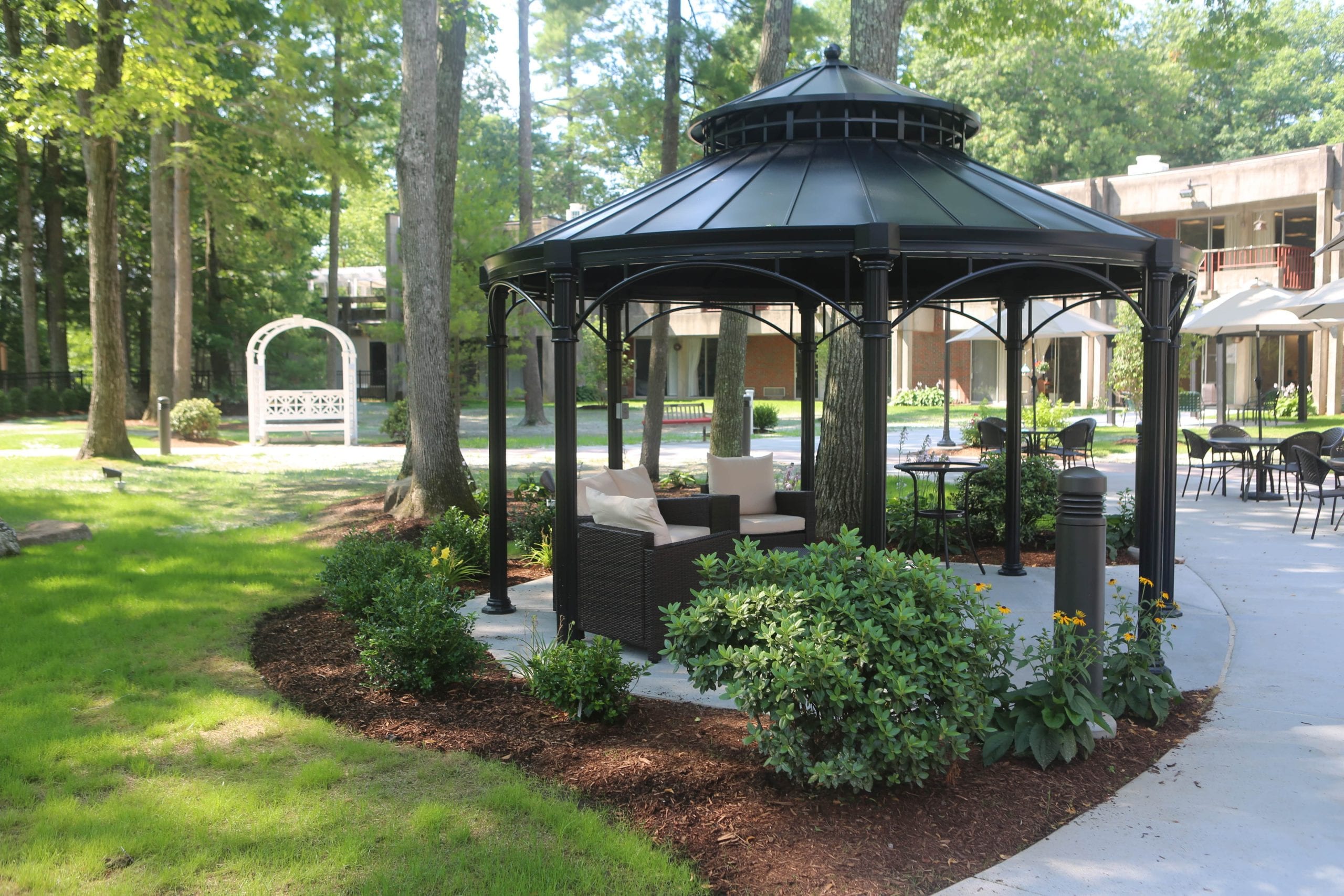Are you noticing your loved one is forgetting things more often? Are they having difficulty staying on task? Maybe they are becoming irritated at things that were never an issue before.
Could it be these changes are just a part of normal aging? Or could it be something else?
Unexpected changes in memory and behavior can be unsettling, even frightening. “Maybe’s” and “what if’s” can overwhelm and even keep us from facing an ominous mountain of information.
But as you stand at the mountain base, know this…you are not alone and knowledge truly is power.
And the keys to scaling this mountain with clarity and footing early on are…
- Gathering credible information to build awareness.
- Jotting details from their story/experience for context.
- Having them checked by a doctor for proper diagnosis, as some symptoms can mirror dementia, such as a thyroid condition, effects of medicine, diet/nutrition, and lack of exercise.
So, let’s begin climbing this mountain of memory loss, dementia and Alzheimer’s Disease.
The Truth About Dementia
For starters, while aging may bring about some memory decline, dementia is not part of normal aging. And it is not a disease. Dementia is a general term used to describe symptoms of severe memory loss and cognitive decline that inhibit daily living.
There are many forms of dementia. Alzheimer’s disease, a degenerative brain disease, is the most common form of dementia, accounting for 60-80% of cases. While more than 6 million Americans are currently living with Alzheimer’s disease, it’s important to remember that not every type of dementia is related to Alzheimer’s.
In fact, the changes they’re experiencing may not even be dementia at all, but a form of Mild Cognitive Impairment (MCI). This is a condition which is more severe than common aging forgetfulness, but less severe than dementia.
The bottom line is: gathering information and getting checked early on can help you to determine what is going on so that you and your family can build support for the journey ahead.
Maybe you’re wondering what this journey ahead looks like right about now…
Stages of Dementia and Alzheimer’s Disease
The Alzheimer’s Association lists common symptoms and behaviors in each stage of dementia to provide context for understanding your own symptoms. Every experience can look different, and symptoms can even overlap stages, so use the following as a general guide to inform rather than sweeping facts.
Early-Stage (Mild)
Symptoms in the early stage of dementia or Alzheimer’s disease may be subtle, but may impact the person’s ability to successfully and independently manage daily life.
Challenges may include:
- Completing tasks
- Remembering information that was just read
- Recalling names of new people
- Thinking of the right word
- Losing track of valuables
- Difficulty with planning and organizing
In this early stage, a forward-thinking mindset can help you prepare financial and care plans together. Participating in meaningful activities and personal relationships are also important factors in this stage.
One important step, according to Ann Pavano, McLean’s Memory Care Volunteer Coordinator & Campus Liaison, is to join a support group. “It can open avenues for resources and relationships to help you cope with changes and help you line up your ducks,” she says.
Talking with others on a similar journey can help both you and your loved one cope with the emotional impact of a diagnosis. They can also give advice for sharing the diagnosis with friends and family. Being open about the changes occurring can help others and break through stigmas often associated with dementia and cognitive decline.
Being honest about the changes and tasks becoming increasingly difficult may be difficult for your loved one to communicate, and accepting a diagnosis of impending change is an important first step. Finding new strategies to cope can bring about more control in successfully meeting the challenges ahead.
McLean has resources that can help you both. Every month, McLean reaches out to those living with dementia and their families in the community with a social engagement group. We also sponsor the GAP Group on campus (and virtually during COVID-19), in partnership with the Alzheimer’s Association. This group provides a supportive environment for conversation, activities and community.
Middle-Stage (moderate)
The Middle-Stage is often the longest stage and requires more care. It can last for years with emotional and behavioral symptoms becoming more acute and unpredictable.
Challenges may include:
- Confusion over what day it is or where you are
- Recalling important, personal information and history
- Increased tendency to wander and become lost
- Heightened emotions or withdrawal in difficult social or thinking situations
- Heightened personality and behavioral changes such as “suspiciousness and delusions, or compulsive and repetitive actions like hand-wringing or tissue shredding”
- Trouble controlling bladder and bowels
- Choosing appropriate occasion or seasonal clothing
- Reverse sleep patterns
If you’re a caregiver, your loved one’s emotions and behaviors may seem confusing and overwhelming at times. A support group can encourage you and give gentle reminders that “it’s not their fault” in challenging moments.
Those on a similar journey can share strategies to simplify tasks for feelings of usefulness and confidence in daily activities. Hearing how others communicate effectively through reassuring touch and kindness can build your confidence, too.
In addition to support groups, there are many online resources to help caregivers in the unique challenges of memory loss.
- Daily Caring provides information and practical tips for everyday situations. Awarded “Best Caregiver Website in 2020,” you can find resources like lists of “failure-free activities” that engage your loved one in activities to reduce “agitation, anxiety, depression, and anger.”
- Golden Carers produces creative, practical and meaningful activities for those with dementia or Alzheimer’s disease. Sorting, sensory, reminiscing, matching, musical and other activities tap into the past and encourage feelings of accomplishment and usefulness.
- AARP has a collection of articles written about dementia health and research, tips about caring for someone with dementia, and inspiring personal stories of maintaining hope and overcoming everyday obstacles.
Late-Stage (severe)
Dementia symptoms are severe in this last stage. Responding to one’s surrounding environment, engaging in conversation and controlling movements are often lost.
Challenges may include:
- Losing awareness of experiences and surroundings
- Communication difficulties, particularly in expressing pain
- Physical abilities such as walking, sitting, holding head up, and swallowing
- Need for full-time, personal care with loss of bladder and bowel control and personality changes
- Susceptibility to infection, particularly pneumonia
In this last stage, those with dementia still desperately needs personal interaction and reassuring touch. There have been many instances of those in this stage (and all stages) responding to music.
Take the instance of an Italian Prima Ballerina with advanced Alzheimer’s. While largely non- communicative, when she heard the music of Tchaikovsky’s Swan Lake, she moved her arms and hands in perfect, graceful sequence to the music as if back on stage.
Moments like these are powerful reminders that your loved one, though changing in cognition and behavior, is still the same person with the same story that you’ve known and loved.
Take one step at a time. Be present. Make sure you both continue your friendships and family relationships. Ask for help. You will find ways to navigate this unique journey. And you can find joy together in the moments right in front of you.
—
Hansen, Kelli. “What Are the Signs of Early Onset Alzheimer’s Disease (AD)?” Healthline. June 30, 2020. https://www.healthline.com/health/alzheimers-disease/signs-of-early-onset-alzheimers#symptoms-of-early-onset
“I Have Alzheimer’s.” Alzheimer’s Association.
https://www.alz.org/help-support/i-have-alz
“Dementia Care: Helping Your Loved One Stay Connected and Safe.” AARP. May 14, 2020.
https://www.aarp.org/caregiving/basics/info-2019/alzheimers-dementia-care.html
“Alzheimer’s & Dementia.” Daily Caring. https://dailycaring.com/category/health-conditions/alzheimers-dementia/
“Mild Cognitive Impairment: Not Dementia, but More Than Normal Forgetfulness.” Daily Caring.
https://dailycaring.com/mild-cognitive-impairment-not-dementia-but-more-than-normal-forgetfulness/
“Alzheimer’s & Dementia.” Golden Carers.
https://www.goldencarers.com/dementia/
Jacobs, Barry J. “Overcoming the Stigma of Dementia and Isolation of Caregiving.” AARP.
April 30, 2019.
https://www.aarp.org/caregiving/life-balance/info-2019/overcoming-dementia-caregiver-stigma.html
“Dementia.” AARP.


